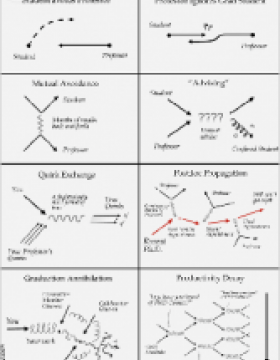Identify the issue: Overview
Solving a personal or interpersonal problem in graduate school starts with understanding it fully. You have to be your own investigative reporter. To begin, it may help to know that the issue you are grappling with is one that many women face in STEM Ph.D. programs. The modules in Common concerns describe these in some depth. Next, it is crucial to Understand the context in which the issue comes up. The features of the proximal and distal environments you work in – their practices, policies, norms, and expectations – often create difficult situations for you. And then there is you. Better Understanding yourself and how you interact with your environment sets the stage for developing a strategy to deal with the issue effectively.

Common concerns
As part of identifying a problem, it might help you to know that other women …

Understand the context
Understanding the context refers to recognizing the “non-you” parts of the problem.

Understand yourself
How much do you know yourself? An essential part of problem solving is identifying how your thinking and feeling styles and your unique preferences influence your reactions to the situation. Do you experience sexual comments, requests, or attention from others that you don’t want?